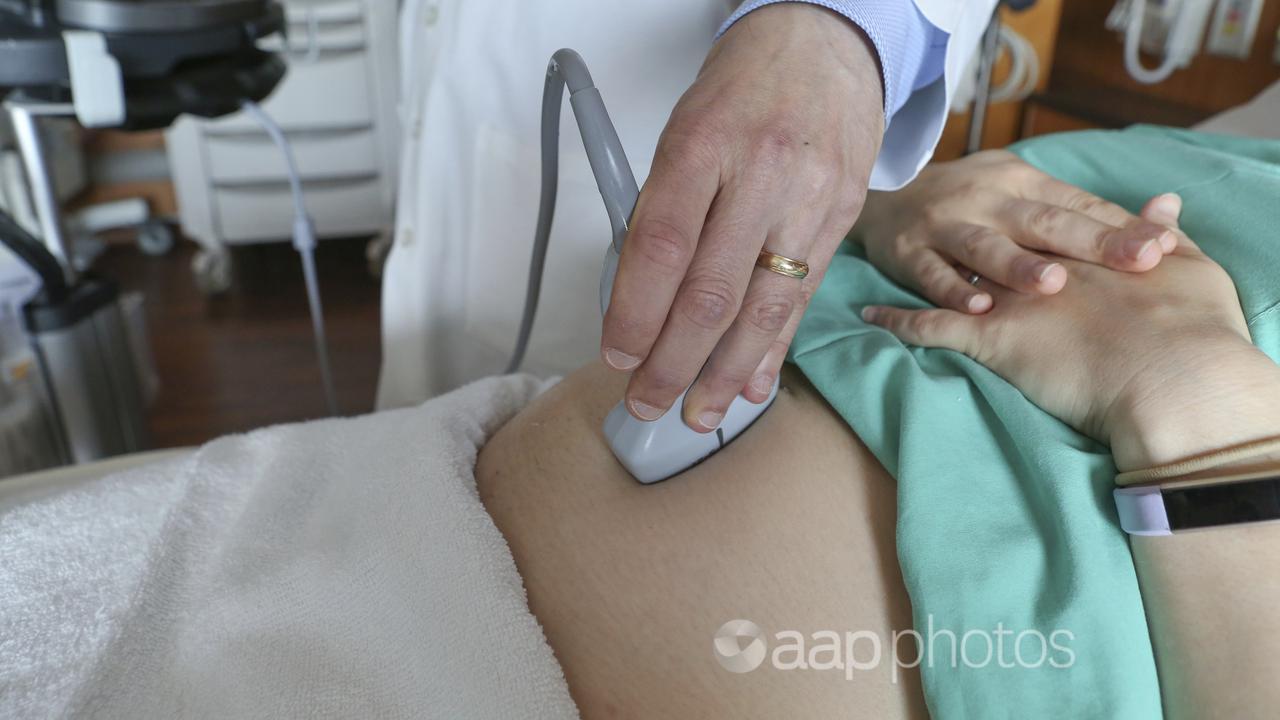As Australia and New Zealand push for high vaccination rates to combat outbreaks of the COVID Delta variant, attention has turned to vaccine hesitancy among pregnant women.
Tapping into the topic is a meme claiming that in New Zealand there had been 124 miscarriages among 180 pregnant women who had their first dose of COVID-19 vaccines – which it said was an 80 per cent death rate.
But the claim is baseless, with official figures showing 13 miscarriages had been recorded at the time of writing as potential adverse reactions in New Zealand during the COVID-19 vaccine rollout. These miscarriages were not necessarily linked to the vaccines, and multiple experts and studies say there is no evidence of an increased risk of miscarriage following vaccinations.
The meme – which incorrectly identifies 124 deaths as being 80 per cent of 180 when it is 69 per cent – does not provide a verifiable source for its data. However, a purported 80 per cent miscarriage rate following COVID-19 vaccination has previously been traced to blog posts that misinterpreted data in a preliminary study published in the New England Journal of Medicine. The figure has been debunked widely (see here, here, here and here).
NZ data from Medsafe show there had been 13 miscarriages/aborted pregnancies reported as adverse events between the start of the vaccine rollout in February and October 16 (see adverse events of special interest).
Medsafe notes that while these and other reported adverse events may have occurred following vaccination they did not necessarily occur as a result of the vaccines. According to the NZ Ministry of Health website, around 1 or 2 in every 10 pregnant women miscarry, while approximately 1 in every 200 pregnancies end in stillbirth.
The only COVID vaccine available in NZ is the Pfizer-BioNTech mRNA vaccine. Major international health agencies such as the US Centers for Disease Control and Prevention advise pregnant women to get vaccinated as they are more likely to get severely ill with COVID-19 than the general population, while also pointing to studies that show there is no increased risk of miscarriage following receipt of an mRNA vaccine.
In June, the Royal Australian and New Zealand College of Obstetricians and Gynaecologists and the Australian Technical Advisory Group on Immunisation issued a joint statement saying: “Global surveillance data from large numbers of pregnant women have not identified any significant safety concerns with mRNA COVID-19 vaccines given at any stage of pregnancy.”
In New Zealand, the Ministry of Health provides similar advice. Juliet Rumball-Smith, the ministry’s clinical chief advisor, told AAP FactCheck in an email: “Data from millions of pregnant people who have already been vaccinated globally indicates that there are no additional safety concerns with administering COVID-19 vaccines at any stage of pregnancy.”
Dr Rumball-Smith said research also showed “if you’re not vaccinated and you are pregnant and catch COVID-19 you are more likely to be admitted to a hospital’s intensive care unit and your baby is more likely to suffer harm”.
Mary Nowlan, a medical writer at the Immunisation Advisory Centre at the University of Auckland, told AAP FactCheck there was an increasing amount of literature supporting vaccination in pregnancy.
“Pregnant people need to be alerted to potential response to the vaccine (fever, muscle aches etc) and to monitor symptoms if they persist, but there is no evidence that these responses are likely to trigger miscarriages or increase risk for pregnancy complications,” she said in an email.
“The risk from COVID-19 infection is much higher and life-threatening, especially late in pregnancy and postpartum, and in women with other health conditions such as diabetes, hypertension and obesity.”
Dr Nowlan pointed to a review of studies showing no evidence of an increased risk of “spontaneous abortions” in pregnancy after vaccination with mRNA COVID vaccines.
A Norwegian study found no increased risk of first-trimester miscarriage following vaccination, while a US preprint study of smart-phone based surveillance data (v-Safe) also showed no increase in risk of spontaneous abortion following mRNA COVID-19 vaccines for preconception or in early pregnancy (prior to 20 weeks’ gestation).
A British study showed there were no significant differences in perinatal outcomes between women vaccinated in pregnancy (140 women) or unvaccinated (1188 women).
Michelle Wise, a senior lecturer in the Department of Obstetrics and Gynaecology at the University of Auckland, told AAP FactCheck that studies published this year comparing the outcomes for vaccinated pregnant women and unvaccinated women were consistent in their conclusions.
“The miscarriage rate is not different, nor is the rate of babies being born with abnormalities following exposure to the vaccine during the first trimester,” she said.
“Moreover, all the pregnancy outcomes such as preeclampsia, gestational diabetes, fetal growth restriction and preterm birth are the same – this is best shown by the BORN database where every pregnant woman in Ontario, Canada, is followed up.”
The Verdict
There is no evidence of higher rates of miscarriage among pregnant women who receive COVID-19 vaccinations, and multiple studies have found no increased risk following inoculation. The 80 per cent miscarriage rate suggest in the post has been widely debunked and originated with misinterpretations of US research.
False – The claim is inaccurate.
* AAP FactCheck is an accredited member of the International Fact-Checking Network. To keep up with our latest fact checks, follow us on Facebook, Twitter and Instagram.
All information, text and images included on the AAP Websites is for personal use only and may not be re-written, copied, re-sold or re-distributed, framed, linked, shared onto social media or otherwise used whether for compensation of any kind or not, unless you have the prior written permission of AAP. For more information, please refer to our standard terms and conditions.


















